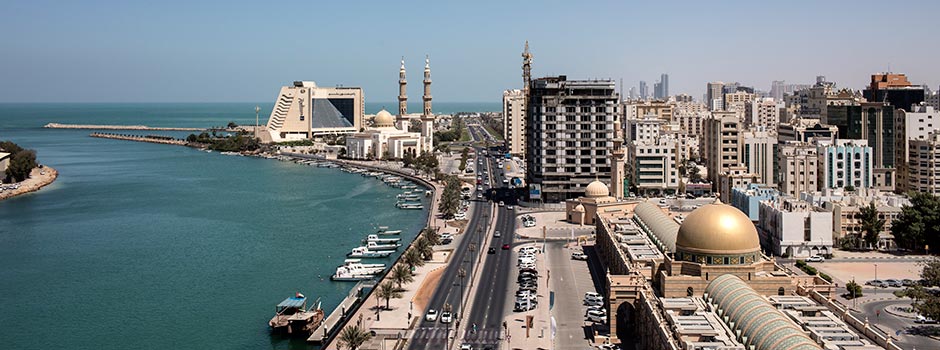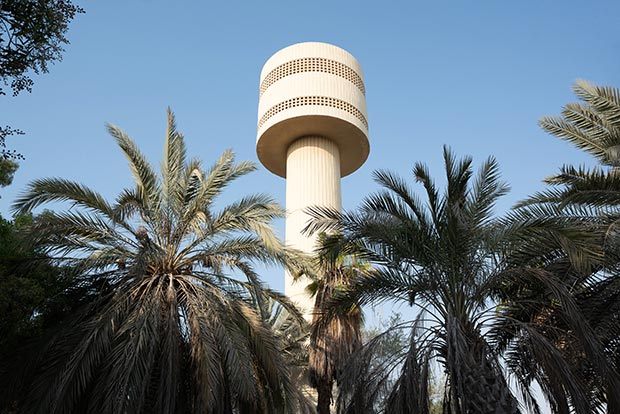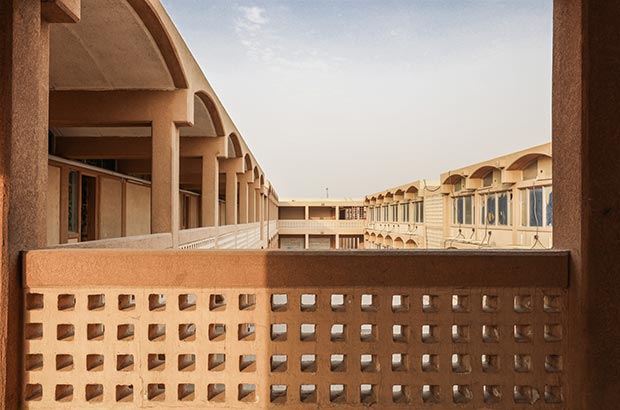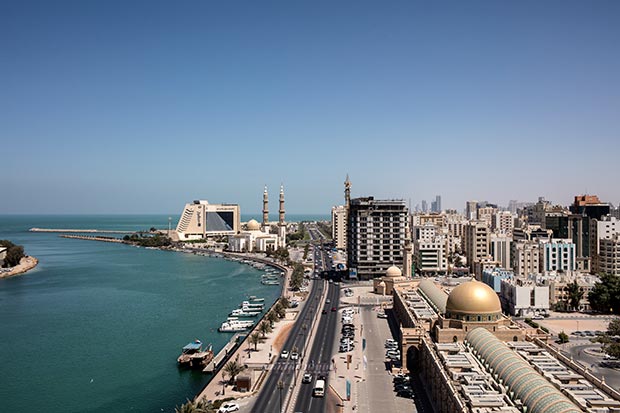
First Edition of Sharjah Architecture Triennial
Mar 11, 2019 EVENT, Art Event

 Al Gubaiba School Water Tower Garden. Credit: Sharjah Architecture Triennial
Al Gubaiba School Water Tower Garden. Credit: Sharjah Architecture Triennial
The Sharjah Architecture Triennial is the first major platform to invite dialogue on architecture and urbanism in the Middle East, North and East Africa, South and Southeast Asia. The inaugural edition opens in November 2019 curated by Adrian Lahoud with the theme of Rights of Future Generations. Inherent in this theme is a commitment to address climate change as the most urgent challenge facing humanity today.
The Triennial is pleased to announce Ambassador Lumumba Di-Aping as the chair of the Rights of Future Generations Working Group, a forum for dialogue and advocacy on behalf of future generations who will bear the burden of climate impact. Additionally, as part of the Triennial’s wider programming, an Environment & Ecology Forum will be held in Sharjah on 15 March exploring how particular environmental contexts and conditions in the Global South produce unique relationships between human beings and ecosystems.
The 2019 edition of the Triennial has invited Di-Aping, who represented developing countries as Chairman of the G77+China at the December 2009 Copenhagen climate change conference, to bring together United Nations representatives, government officials, international rights groups, and members of relevant civil society organisations. The Working Group’s mission is to advance the protection of future generations’ fundamental rights in a world where climate change is dramatically shifting along socio-economic, legal, gender, racial and political dimensions. Through examining the quality and form of life as it is experienced today and as it will be experienced in the future, the Rights of Future Generations Working Group will collaboratively produce The Sharjah Charter to be presented at The Sharjah Summit at the Triennial. Members of the Working Group will be announced in September 2019.
 Al-Qasimiyah School, Al-Manakh, Sharjah. Credit: Sharjah Architecture Triennial
Al-Qasimiyah School, Al-Manakh, Sharjah. Credit: Sharjah Architecture Triennial
Lahoud questions how inheritance, legacy and the state of the environment are passed from one generation to the next and how present decisions have long term consequences. Turning to alternative concepts of architecture and the environment, Rights of Future Generations draws attention to moments when experimentation generates other possible modes of co-existence. In the lead up to its November opening, the institution is reframing ongoing conversations through a public programme in Sharjah that creates a new space for critical dialogue among architectural practitioners, academics, government and the public.
A part of this programme is the upcoming 15 March forum on the subject of Environment & Ecology, the third in a series organised around Housing & Domesticity and Schooling & Education; along with an upcoming forum on Diasporic Networks, these make up the major research strands within the Triennial’s theme. The 15 March forum interrogates climate change as a consequence of societies that have learned to see other living beings as little more than resources to be exploited. Speakers are confirmed as Dalal Alsayer, PhD Candidate in History and Theory of Architecture at the University of Pennsylvania; Samia Henni, Assistant Professor at the College of Architecture, Art and Planning at Cornell University; and Marina Tabassum, founder of Marina Tabassum Architects and 2016 winner of the Aga Khan Award for Architecture.
 Sharjah Architecture Triennial Credit: Sharjah Architecture Triennial
Sharjah Architecture Triennial Credit: Sharjah Architecture Triennial
Responding to the unique circumstances that architects, scholars, planners and artists in a postcolonial Middle East, North and East Africa, South and Southeast Asia face, Rights of Future Generations initiates the Sharjah Architecture Triennial’s mission to serve as a space for dialogue that supports an emerging generation of architects drawn from across the Global South and their diaspora.
Comments
Add a comment